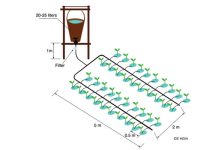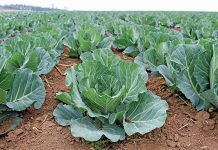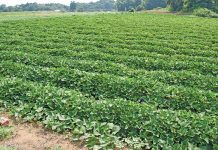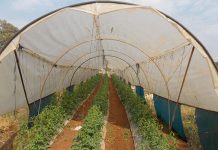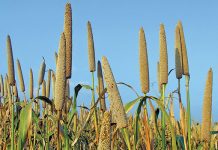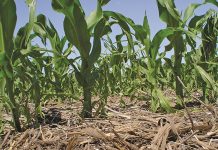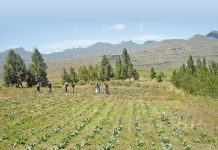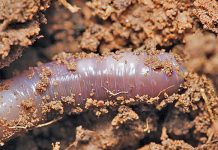Harvesting ‘grey water’ for drip irrigation
Irrigation is an essential part of producing good crops, even in a vegetable garden or home orchard. Here’s a cost-effective way of ensuring that your fruit and vegetables get enough water, says Shane Brody.
How to plan a community food project
A well-organised garden project can supply a community with fresh fruit and vegetables at low prices, as well as provide jobs. The first step is to calculate how much you can grow and where to grow it, says Shane Brody.
Using nematodes for biological control of crop pests
Mankaba Matshidiso Whitney Matli, an agricultural economist part of the Agricultural Research Council Professional Development Programme, discusses the importance of biological control to decrease the damage caused by various crop pests without harming the environment.
Prevention can outsmart pests and diseases
Successful pest and disease management depends on scouting and monitoring crops. Magda du Toit spoke to a major citrus producer, as well as pest-control experts from various organisations.
Plant citrus to supplement your income
Citrus fruits, which are rich in vitamin C, fetch a good price. Consider starting a co-operative system in your community, planting trees in a number of yards and buying inputs in bulk to save money, says Shane Brody.
Natural fertilisers for vegetables
Use these fertilisers as a source of plant nutrition or to improve the physical and chemical properties of the soil and avoid over-fertilisation.
How to make a simple, sturdy plastic tunnel at minimal cost
Tunnels ensure faster growth and healthier plants. Bill Kerr explains how to construct a basic tunnel out of plastic sheeting draped over steel hoops. You’ll need a few basic tools and welding equipment.
Pest and disease control in pearl millet production
Chinch bugs, nematodes, mildew, seed rot, rust and other pests and diseases are all threats to pearl millet. Here’s how to deal with them.
How to grow okra in South Africa
Originating in Africa, okra is a popular vegetable cultivated in tropical, subtropical and warm, temperate regions.
Call up your soil microbe army and win the battle for profit!
The return on investment for conventional farms has declined by an average of 1,4% per year in real terms since 1986. But every farmer has a microbe army that can fight back against this trend. Susan Marais found out more at a recent regenerative conservation agriculture farmers’ day in Mpumalanga.
The benefits of conservation agriculture
Erosion and climate change have created a food insecurity time bomb for Africa. Palesa Motaung, a soil scientist working for Asset Research, and Themakholo Mathebula, a field officer with the Mahlatini Development Foundation, explained at a recent research symposium how conservation agriculture is helping smallholder farmers face these daunting challenges.
Want easier, better farming? Add humus and earthworms
The commercial vermicasts sold to farmers and gardeners are an excellent fertiliser, but very expensive. Earthworms give us this for free exactly where it is needed. They also provide many other services to farmers, says vegetable expert Bill Kerr.

